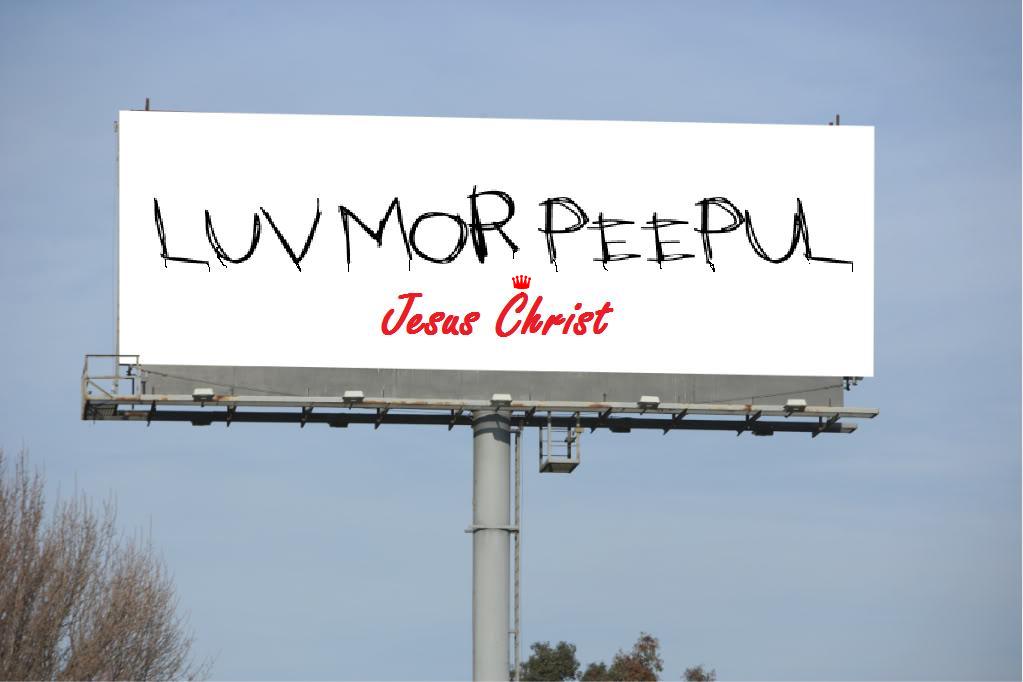In his 1995 book The Scandal of the Evangelical Mind, Mark Noll wrote, “The scandal of the evangelical mind is that there is not much of an evangelical mind.”
Recently, at Patheos, Eastern University professor Peter Enns updated Noll and added that “The real scandal of the Evangelical mind is that we are not allowed to use it.”
Today, I want to extend Enns and Noll and assert that the evangelical mind, such that it is, is double minded.
First, let me say that Enns makes an observation which sounds quite familiar to me:
Calling for Evangelical involvement in public academic discourse is useless if trained Evangelicals are legitimately afraid of what will happen to them if they do.
As a participant in the great sexual reorientation wars of the past decade and the current controversy over David Barton and American history, I can tell you that the culture war complex does not seek or accept well scholarship that does not support current culture war talking points. For instance, after Thomas Nelson dropped Barton’s The Jefferson Lies, Wallbuilder’s number two man, Rick Green, compared Barton’s Christian critics to Hitler and Saul Alinsky. Green wrote:
Question: What do elitist professors have in common with Adolf Hitler & Saul Alinsky?
Answer: They masterfully use the powerful art of innuendo to falsely defame those with which they disagree.
That kind of thing is shocking, but I am mostly numb to it after years of this give and take. However, I think most academics are a little skittish about such vitriol over doing what academics do.
Enns adds:
The scandal of the Evangelical mind is that degrees, books, papers, and other marks of prestige are valued–provided you come to predetermined conclusions.
Persistence pays off and real headway has been made in the sexuality arena, but I still see a blackout of sexual orientation research among Christian media. As I have documented, important studies of sexuality and gender have been reported in the popular press but haven’t risen to the level of newsworthiness in the Christian press. Even though evangelical scholars take these studies seriously, the consumers of culture war and Christian media probably won’t hear about them if the research implicates a biological origin for homosexuality.
On the American history front, many of the popular media sources have ignored the David Barton controversy (e.g,, I don’t think Christianity Today has touched the subject). Many popular radio hosts simply won’t allow another point of view on their programs. I am glad that World Magazine has been the clear exception.
In 2011, Thomas Kidd pointed out that evangelicals are bosses at creating subcultures (e.g., Christian music, Christian television, Christian publishers). We also have our in-house “experts.” Others (e.g., Stephens & Giberson in The Anointed: Evangelical Truth in a Secular Age) have pointed out that these evangelical experts rarely have deep academic training in their chosen subject.
Now we come to the double-minded part. The experts (e.g., David Barton) create their niche by demeaning academic work, even by Christian scholars. Witness Barton’s defense of his work. As noted previously, his radio show co-host blasted us with comparisons to Hitler and Alinsky. With condescension, Barton blasted Coulter and me for being “academic elitists” and added
It is striking that the negative critiques of The Jefferson Lies revolve around the academic arrogance that says “Unless we tell you so, it just can’t be; we are the sole gatekeepers of historical truth.” But Governor Mike Huckabee, in speaking of my approach to history, stated: “In typical Barton style, every syllable is given scholarly research and backed up with source documents. Those who hate America and God’s Word won’t like it, but they won’t be able to discredit it.” Clearly, academics such as Throckmorton, Coulter, Jenkinson, Crawford, et. al., simply don’t like what the self-evident documentation actually proves.
Here is the scandal of the evangelical double-mind. On one hand, evangelicals spend lots of money to send their children to evangelical colleges, and they want those children to learn their lessons well. On the other hand, with donations to culture war organizations, they prop up self-anointed experts who tell them that academic rigor, training, and skill are barriers to the real truth, hidden away by stuffy, arrogant professors. Want to know something about history (science, sexuality, etc.)? Don’t call your child’s Christian college professor; call David Barton.
All of this should be deeply troubling to evangelicals. Actually, the kids are not alright; we are losing them in buckets. I have to say that I believe one of the factors is the anti-intellectual stance of the organizations which say they represent us. By and large, these groups need to do an audit of the claims they make (scientific, historical, etc.) and allow Christian scholars of various views to weigh in. In addition, I think it would be helpful if the Christian media complex would report about research on hot scientific topics. And when they do, they need to go find academics who are doing the research and get comment from those Christian researchers and professors who understand the nuances of the topic.
I start with the premise that science is no threat to faith. If scientific work seems to conflict with tenets of my religion, I accept the tension until I understand things better. Extending that belief to history, I do not need the founders to be evangelicals in order to enjoy and defend American freedom for people of my faith, another faith, and no faith.
Loving God with all my mind doesn’t mean splitting it in two. If a study of science or history tells me something uncomfortable, I do not retool the science or history to make me comfortable. I walk by faith, live with the tension, and accept what is in front of my face.
 If alive, Jackie Robinson would be celebrating his 94th birthday today. The man who broke baseball’s racial barriers has a unique place in the nation’s history.
If alive, Jackie Robinson would be celebrating his 94th birthday today. The man who broke baseball’s racial barriers has a unique place in the nation’s history.